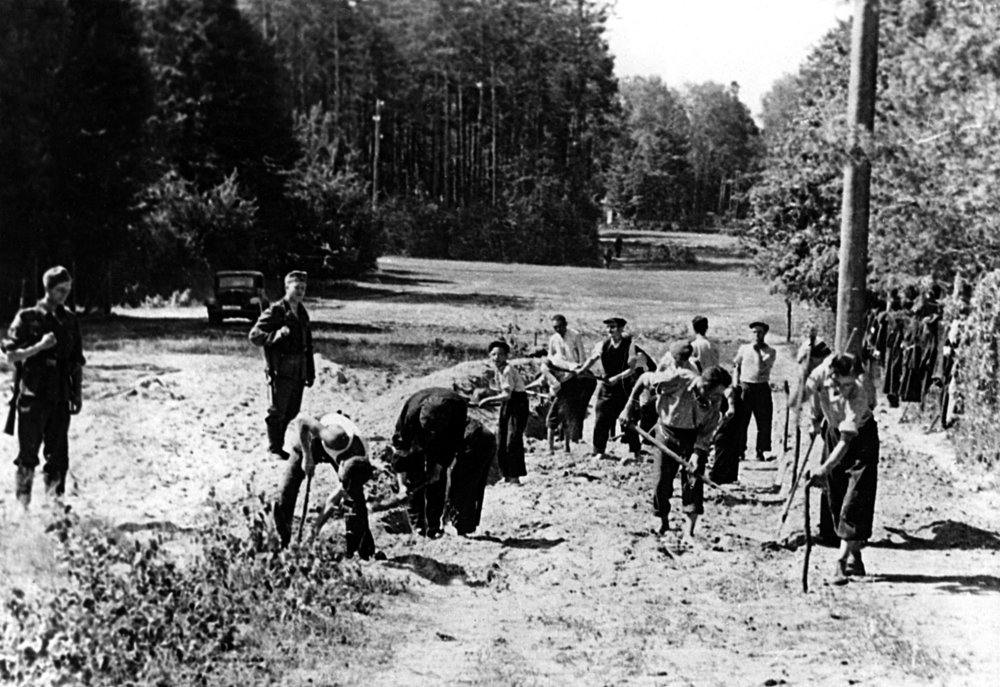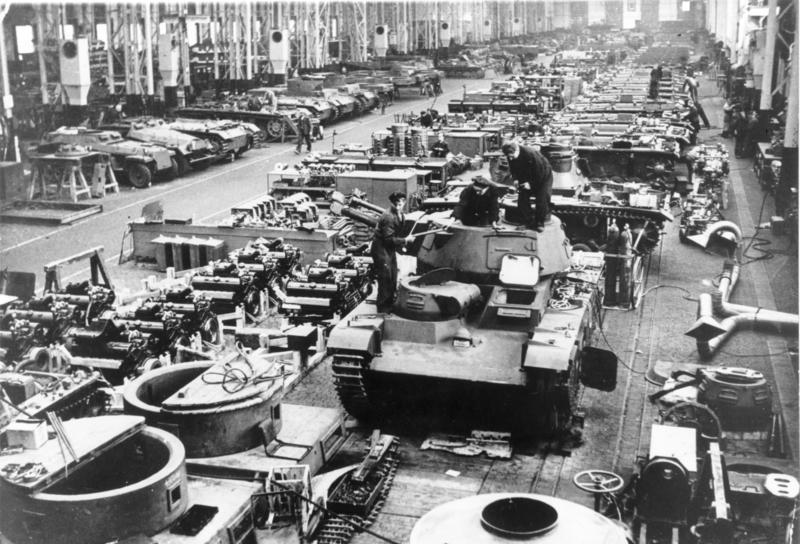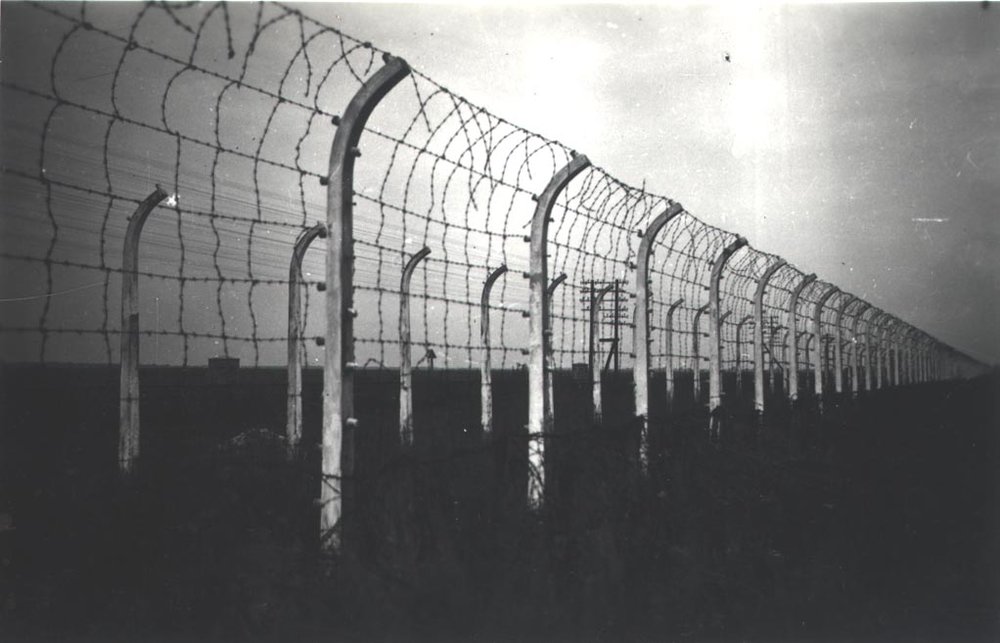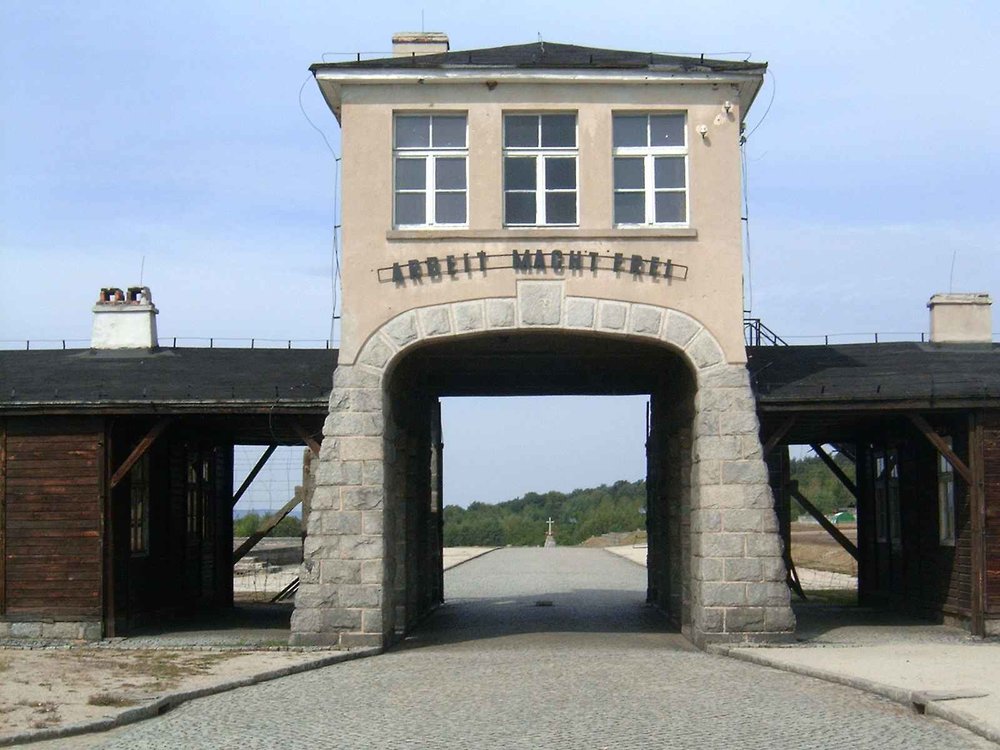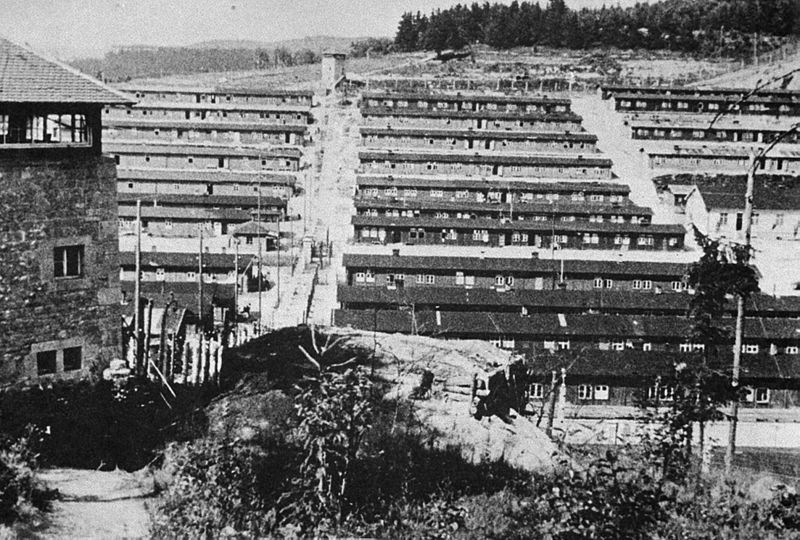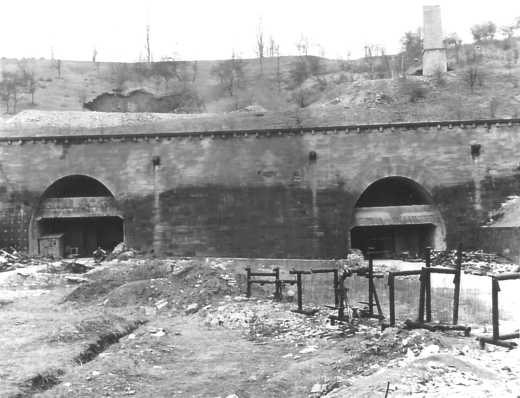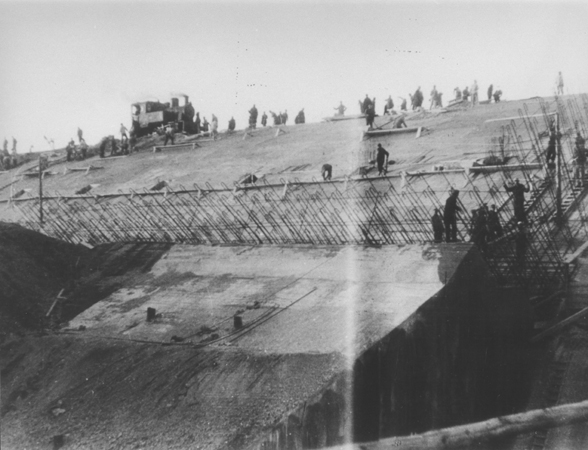EXCERPT FROM THE LONG NIGHT
Märkstadt
“An incident took place which affected an inmate from my home town. This young man was called Lubling. He could no longer bear the arduous work and the appalling psychological pressure. He was incensed by these creatures, the camp functionaries, who were once fellow-prisoners. His will to live was probably suffocated by his psychological desperation, because one day he committed suicide. Suicide was an infrequent occurrence. It was peculiar. As our lives became more difficult and helpless, so our hopes for freedom were diminished, and yet our determination to cling to life was strengthened. Even the doomed, the so-called “Muselmänner*” clung desperately to life.
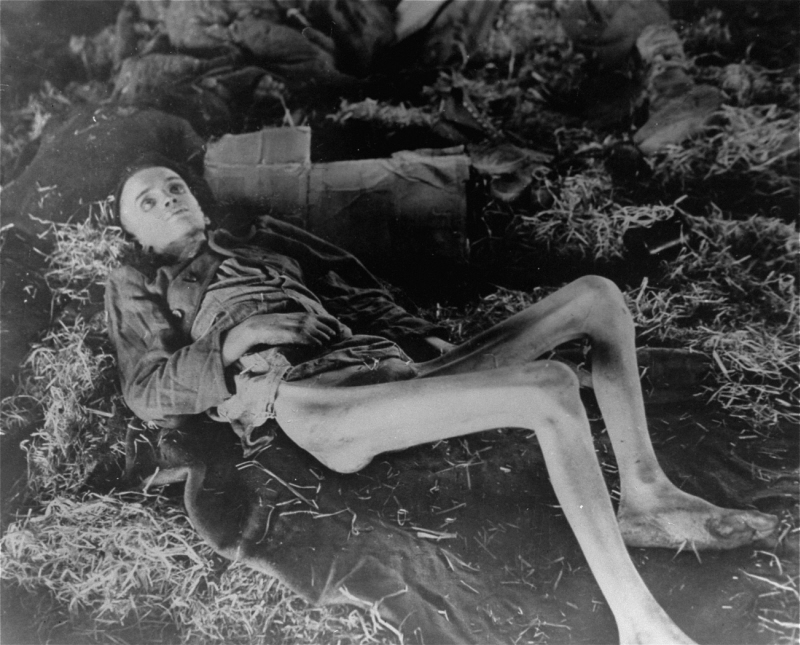
‘Musselmann’ – An emaciated survivor lies inside a barrack on a pile of straw in the newly liberated Nordhausen concentration camp. He died shortly thereafter. [USHMM courtesy Ilona Shechter]
There were only a few odd inmates who voluntarily chose death from amongst the thousands of sick, weak and desperate ones. Again and again my instinct for survival asserted itself. I observed that some prisoners often managed to avoid heavy work. Not everyone appeared to be starving. There were still hundreds of inmates who could last because their work was lighter. They had opportunities to contact foreign workers, and so were able to find ways and means of making semi-legal arrangements to “organise”. I was constantly preoccupied with one question. How could I change my situation? I did not want to remain at the rail track under the supervision of Berger and Bromberger. I did not want to be killed by hunger and weakness. I lay sleepless for many hours on my bunk and longed for a way out.
* In a report by an expert witness in the trial of the camp leadership at Auschwitz, Professor J Olbricht gave the following description of a Muselmann: atrophy of the fat tissue and muscles, the face took on a mask-like expression, the eyes were wide open and the pupils unnaturally enlarged, apathy, indifference, somnolence, weakness of all living processes, especially the psychological, his hearing and vision was poor, various reactions and associations and response to pain were all impaired. The SS and camp officials often wrongly interpreted all the forgoing as passive resistance and subjected them to repeated torture and beatings. Their interest in their surroundings and their ability to take care of themselves gradually disappeared until, without being aware of it, they were inevitably overtaken by death.

